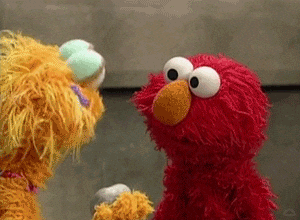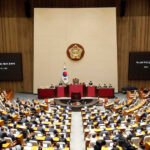Have you ever heard of “Blue Zones”?
These parts of the world are known for having citizens who live exceptionally long and healthy lives.
Some of these places may look familiar to you:
Okinawa, Japan (home of Mr. Miyagi from Karate Kid!). Sardinia, Italy. Nicoya Peninsula, Costa Rica. Ikaria, Greece.
People live longer in these locations because of their local, whole foods, high vegetable consumption, low disease incidence, diverse social interactions, low stress, and ample physical activity.
Books, documentaries, and countless news articles have championed these societies, and millions upon millions of health-conscious people have modeled their lifestyles after these people.
There is simply one Problem with this amazing story.
That’s actually not true.
The first Ig Nobel Prize for Demography
Last month Dr. Saul Justin Newman was awarded the first “Ig Nobel Prize” for demography.
These awards are given annually for scientific research that “makes people laugh and then think.”
For this particular award, Newman was recognized for refuting nearly all the results of all studies on the Blue Zones.
This is what Dr. Newman found out:
“The highest rates of reaching extreme old age are predicted by high poverty, lack of birth certificates, and fewer 90-year-olds.
Poverty and the pressure to commit pension fraud have been shown to be excellent indicators of reaching age 100+ in ways that are “the opposite of rational expectations.”
It turns out that most of the “very old, healthy” individuals in these blue zones were simply a result of this very poorly kept records, pension fraud and outright lies.
Let’s take a look at what’s actually happening in Okinawa:
“Although vegetables and sweet potatoes are touted as key components of the Okinawan Blue Zone diet, according to the Japanese government, Okinawans eat the fewest vegetables and sweet potatoes in Japan and have the highest body mass index.”
Oooooof. So what the hell do we do now!?
Beware of anecdotal stories that make dramatic promises
Spend enough time on social media and you’ll come across people telling you to eat only meat, to cut out carbs completely, how “that one supplement saved their life,” or that using XYZ cured their illness healed and so on.
These anecdotal stories are incredibly powerful, especially when they include a villain, a victim, and a hero’s story of overcoming adversity. They are also often used to sell you a solution in pill or powder form.
The good news is that we have data that is constantly being refined by science.
Not us Strictly speaking We don’t need to know what people in Okinawa eat, nor do we need to study the daily habits of a particular community in Costa Rica.
Don’t get me wrong, I also love a good, quirky story about the ways of a faraway land, but it still comes back to reality and science!
And we can remember that we must do what is best for our particular situation. That could include therapyit could include Weight loss medicationsit could mean you’re just focusing on sleep now!
The decision is ours and we can do so with confidence. Not because that’s what’s happening in Costa Rica or Greece, but because it’s simply the best thing for us.
Here are some ways we can positively influence our lifespan and/or healthspan.
Yes, some of these things are part of the Blue Zone diet… just without the sensationalism and pension fraud.
And many of these may be beyond our control!
For example, social determinants of health (financial stability, access to health care, education, our neighborhoods) are strongly related to all-cause mortality, and many of these things may be unavailable to large portions of the population.
Life is chaotic
I don’t mention all this to tell you to avoid a Blue Zone diet.
Heck, there could be a lot worse than eating a Mediterranean diet! Naturally You will most likely lose weight and feel healthier if you eat mostly fresh fish, whole foods, and vegetables.
I mention all this to remind you that life is messy.
A long, healthy life is a combination of dozens of interrelated things (like those listed above), thousands of decisions we have made throughout our lives. Plus Things like genetics, society and luck! What works for one person may not work for another, and there is no “one diet fits all” solution to our problems.
We could be hit by a bus tomorrow, receive a cancer diagnosis even though we “did everything right,” or… A freak accident that changes everything next week.
So instead of chasing immortality with sensationalized anecdotes or getting carried away by the latest social media trend…
We can continue to focus on the things that we absolutely believe will make us better off tomorrow than we are today.
Like the things on the list above! Now if you’ll excuse me, I’m going to do some push-ups, eat a vegetable, and take a short walk while I call a friend.
-Steve
PS Hats off to my friend Jodi Ettenberg, whose heartbreakingly powerful story about acceptance I linked above. It was your newsletter That’s what led me to this article!
###





